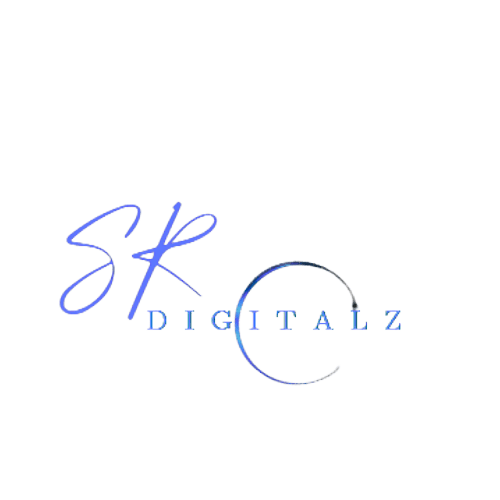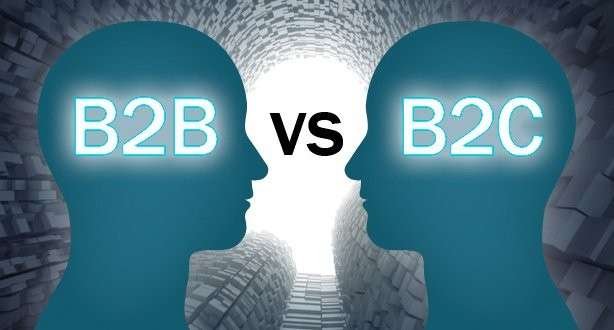Creating Highly Personalized Content on Facebook with Meta AI in 2024
Personalization is now essential in the ever changing digital landscape to draw in and keep viewers. Facebook is a prominent social media site that provides businesses with numerous avenues to establish a personal connection with their audience. By 2024, businesses will use Meta AI to develop and curate tailored content on Facebook in a completely new way. This blog will examine how businesses may use Meta AI to create highly tailored content that connects with their target audience and encourages engagement and loyalty.

The Importance of Personalized Content
Personalized content is crucial for several reasons:
- Improved User Experience: Individual tastes are catered to by personalized material, which gives consumers a sense of worth and comprehension.
- Enhanced Interaction: Content that is specifically designed to attract and hold the interest of users is more likely to do so.
- Increased Conversion Rates: By catering to individual needs and interests, personalized messaging and recommendations can increase conversion rates.
- Brand Loyalty: Consumers are more inclined to stick with a brand if they sense a personal connection to it.
How Meta AI Enhances Content Personalization on Facebook
Meta AI creates and curates content that speaks to specific people by utilizing large amounts of data and sophisticated machine learning algorithms. Here are a few ways Facebook’s content customization can be improved using Meta AI:
1. Audience Segmentation
With the use of user behavior, demographics, and interest analysis, Meta AI can divide your audience into discrete categories. This enables you to specifically customize material for every section, making sure that it connects with every audience segment on a deeper level.
- Behavioral Analysis: Find out what kinds of posts people interact with most and how they interact with your material overall.
- Demographic Insights: Get insights about age, gender, geography, and other demographic aspects to provide content that is pertinent.
- Interest Mapping: Find out what interests your audience members have in common to create content that appeals to their tastes.
2. Content Recommendations
Content kinds, subjects, and forms that are likely to be well-received by your audience can be suggested by Meta AI. Meta AI assists you in determining the most effective content for your target audience by examining historical performance and user engagement.
- Predictive Analytics: Make use of predictive analytics to determine the kinds of material that will pique the interest of your readers.
- Content Format Optimization: Find out which formats—images, articles, videos, or other formats—your audience prefers.
- Topic Suggestions: Get ideas for themes and topics that are popular right now and appeal to your audience.

3. Dynamic Content Creation
Meta AI can assist in developing dynamic content that adjusts to individual user preferences in real-time. This guarantees that each user sees content that is most relevant to them, enhancing engagement and happiness.
- Personalized Messaging: Write messages that are tailored to the requirements and preferences of each unique user.
- Adaptive Content: Employ dynamic content that adjusts according to user choices and behavior for adaptive content.
- Real-Time Customization: Provide content modifications in real-time in response to user input and comments.
4. Enhanced Ad Targeting
By pinpointing the most pertinent consumers for your ads, meta AI can enhance your ad targeting. This makes sure the people who are most likely to interact with and convert from your adverts see them.
- Lookalike Audiences: Make lookalike audiences by using the client groups that are working the best for you.
- Custom Audiences: Make highly focused advertising campaigns by utilizing data from your current clientele.
- Behavioral Targeting: Target consumers according to their involvement and behavior patterns on the internet with behavioral targeting.
5. Sentiment Analysis
To determine sentiment, Meta AI can examine user reviews, comments, and interactions. This enables you to make wise modifications by giving you a better understanding of how users feel about your brand and content.
- Positive/Negative Sentiment Detection: Recognize both good and negative emotions in user interactions with the use of positive/negative sentiment detection.
- Feedback Analysis: Examine user comments to determine the most popular content.
- Brand Perception Insights: Get insights into how your audience views your brand with our brand perception insights.

Implementing Meta AI for Personalized Content on Facebook
To efficiently use Meta AI for Facebook tailored content creation, take the following actions:
- Integrate Meta AI Tools
- To include AI capabilities into your Facebook marketing plan, utilize Meta’s collection of AI tools and APIs.
- Collect and Analyze Data
- To help guide your personalization strategy, collect information about user behavior, preferences, and interactions.
- Segment Your Audience
- By using Meta AI, you may divide your audience into discrete groups according to their interests, behavior, and demographics.
- Create Dynamic Content
- Provide dynamic content that instantly adjusts to each user’s unique tastes.
- Test and Optimize
- Utilize user feedback and performance data to inform ongoing testing and optimization of your advertising campaigns and content.
- Monitor Sentiment
- Sentiment analysis can be used to track user opinions on your material and make necessary changes.
Conclusion
By 2024, businesses will use Meta AI to curate and produce tailored content on Facebook in a whole new way. Through the utilization of sophisticated machine learning algorithms and copious volumes of user data, Meta AI empowers enterprises to furnish exceptionally pertinent and captivating content that strikes a chord with their target audience. Businesses can design a more individualized and successful Facebook marketing plan by concentrating on audience segmentation, content recommendations, dynamic content development, increased ad targeting, and sentiment analysis. Accept the potential of Meta AI to build deeper connections with your audience and to generate significant interaction and brand growth.
FAQs
Q1: What is Meta AI?
A collection of cutting-edge artificial intelligence tools and technologies created by Meta (formerly Facebook) is known as Meta AI. These tools let organizations to produce and distribute highly tailored content by analyzing user behavior, preferences, and interactions through the use of machine learning algorithms and large volumes of data.
Q2: How does Meta AI help with audience segmentation?
Meta AI divides your audience into discrete categories by analyzing user data, such as demographics, interests, and behavior. By breaking up your content into distinct groups, you can make sure that each audience segment is more likely to connect with your content.
Q3: What are some examples of personalized content I can create using Meta AI?
You can utilize Meta AI to produce customized ads, real-time adaptive dynamic content, personalized messaging, and content recommendations based on user preferences. For example, you can provide customized product recommendations, modify blog entries based on user preferences, and make targeted advertisements for particular audience groups.
Q4: How does Meta AI improve ad targeting on Facebook?
By determining the most relevant audiences for your ads, meta AI improves ad targeting. It enables you to target people according to their online behavior and interaction patterns, build lookalike audiences based on your best-performing customer segments, and leverage custom audiences from your current consumers.
Q5: What is sentiment analysis, and how does it benefit my content strategy?
Sentiment analysis is the method of determining sentiment (positive or negative feelings) by examining user comments, reviews, and interactions. Sentiment analysis is a tool that Meta AI utilizes to help you understand how people feel about your brand and content. You can use this information to make well-informed changes that will increase user engagement and pleasure.
Q6: How can I integrate Meta AI tools into my Facebook marketing strategy?
You can use Meta’s developer platform to access their array of AI tools and APIs for integration. You may boost ad targeting, optimize content, and increase personalization by incorporating these technologies into your current Facebook marketing plan.
Q7: What data do I need to collect for effective personalization with Meta AI?
Data on user activity (likes, comments, shares), demographics (age, gender, location), interests, and interactions with your content should all be gathered for efficient tailoring. This information will assist Meta AI precisely categorize your audience and guide your personalization strategy.
Q8: How does dynamic content creation work with Meta AI?
Using Meta AI to create dynamic content entails producing material that instantly adjusts to the tastes of each unique user. Meta AI can be used, for instance, to create tailored product suggestions, modify messaging according to user activity, and change content formats to suit user preferences.
Q9: How can I measure the success of my personalized content on Facebook?
Key performance indicators (KPIs) including engagement rates (likes, comments, shares), click-through rates (CTR), conversion rates, and user feedback can be used to gauge the effectiveness of your tailored content. You may learn more about how well your content connects with your audience by analyzing these data.
Q10: What are some common challenges in creating personalized content, and how can Meta AI help overcome them?
Developing content that appeals to various audience segments, maximizing ad targeting, and comprehending the unique preferences of audiences are common issues. By supplying comprehensive insights into user behavior, enabling precise audience segmentation, and providing predictive analytics to enhance content and ad campaigns, Meta AI helps overcome these obstacles.







